Description
Nahj al-Balaghah is taken from the enlightening words of the Commander of the Faithful, Imam Ali (AS), who, over time, has never seen the dust of oblivion and the dust of oblivion on his radiant face and has not diminished his appearance, piety, justice, jihad and other outstanding attributes. Has not forgotten and has bowed before the greatness of his knowledge and wisdom. The name and memory of Ali (AS) has crossed the border of prejudice and sectarianism, to the extent that friends and enemies of the language have opened their mouths to praise him and in his place, books and poems have been written and his virtue expressed in the language of thought and heart. Have.
Compilation of rhetorical approach
This precious collection, which has continuously added value over time and the emergence of newer and clearer ideas, is a selection of sermons, prayers, wills, letters and short sentences of the pious Mawlawi, Ali (AS).
This lasting work has been compiled and arranged by Allama Seyyed Sharif Razi Rezvan Allah Alayh among hundreds of books and sources. [1]
Author of rhetorical approach
The name of Sayyid Razi was “Muhammad”, his nickname was “Abul Hassan” and he was nicknamed “Sayyid Razi” or “Sharif Razi”, who was born in 359 AH in Baghdad and in 406 AH. AH passed away at the age of 47.
The family of Seyyed Razi is one of the great scientific, religious and pious families of the Imami Shiites, whose lineage goes back to the Prophet and the Commander of the Faithful, Ali (AS) and Fatemeh Zahra (AS).
His father, Hussein ibn Ahmad, known as Tahir Dhu’l-Manaqib, was a great figure and a famous man who, as the most famous Alawite figure, was repeatedly appointed to the position of “Niqabat” (leader of the Alawites and Sadat) of the Abu Talib dynasty in Baghdad. [2]
Seyyed Razi’s mother was an Alavi lady and the same name as her grandfather, Fatemeh Zahra (PBUH), and a respected, knowledgeable and virtuous person. It is said that Sheikh Mufid, the leading Shiite jurist, wrote the book Ahkam al-Nisa for him. [3]
Ali, Alam al-Huda, nicknamed Seyyed Morteza, the brother of Seyyed Razi, who was four years older than him, is one of the honors of the Shiite world and one of the prominent jurists of the fourth century AH.
From the age of seventeen, Seyyed Razi began teaching and writing the sciences he had learned. He had many desirable qualities, including open-mindedness, open-mindedness, a keen interest in learning, and discipleship. Among the works of the late Seyyed Razi Quds, Nahj al-Balagheh is the most famous and enduring one, which the esteemed author wrote in 400 AH, that is, six years before his death, using his extensive knowledge and rich taste and selection of literary goodness.
Name Nahj al-Balaghah
Seyyed Razi (RA) called this book Nahj al-Balaghah, that is, the way and method of rhetoric; Because this book opens the doors of rhetoric to the reader and brings rhetoric seekers closer to it. It meets the needs of the scientist and the student and is lost and the desire is eloquent and ascetic. From the day this book entered the world of culture and literature, it became famous among scientists, orators and literary figures, and its star shone in the Levant, Iraq, Najd and Tahamah [. [4]
Documents, descriptions, translations
This great work tells the story of its great narrator, and in the words of Abbas Mahmoud Aqqad, a famous Egyptian writer and historian: “When you pay close attention, you hear the voice of the Imam beyond words, not another voice.” [5]
Nahj al-Balaghah has been in the possession of scientists, scholars and scholars for about a thousand years. They studied and memorized it and used it in sermons and sermons. Scholars and scholars wrote commentaries on it and translated it.
All commentators and translators of Nahj al-Balaghah, who are more than three hundred people, believe that this book is written by Allameh [6] Sharif Razi and he has succeeded in translating the words of Amir al-Mu’minin, Ali (AS) in an interesting style and manner. Collect and organize. [7]
Some features of Nahjul Balagha
In this short article, we point out some of the features of this enduring book:
1. The word is above the word of men and lower than the word of God.
۲. Its comprehensiveness is such that it deals with all worldly and otherworldly issues after the Qur’an.
3. It is unique in eloquence and rhetoric.
4. After the Qur’an, it has an eternal and universal mission to guide human beings.
5. It has a special attraction for everyone.
6. Far from weakness, error and distortion.
7. Its messages are very valuable.
8. Justice and oppression are unique in it.
Content of rhetorical approach
Nahj al-Balaghah has dealt with various doctrinal, economic, political and moral issues in terms of content and has answered questions related to these areas in the form of sermons, letters and wisdom.
Imam Ali (AS) in Nahj al-Balaghah in the field of belief issues, the creation of the world and man and animals, the purpose of human creation, knowledge of the Almighty, the unity of the Almighty, the purpose of sending prophets, the purpose of the resurrection of the Holy Prophet (PBUH), the continuation of the mission It deals with the Qur’an, its progeny, its destiny and its resurrection.
He also dealt with economic issues and by expressing human responsibility towards lands and livestock, he honored human work and effort and called on him to benefit from the results of his reach. He also mentioned the need for land development, wealth storage, treasury protection, social justice, poverty alleviation, the duty of the rich, the government’s economic programs, the individual duties of the needy, and the duties of the government and society in the field of economics.
Another part of Imam Ali (AS)’s speech is dedicated to political and governmental issues. In this field, the Imam has dealt with the duties of agents, governors, writers, the army and forces and military leaders, tax collection methods and principles of governance.
Another issue of Nahj al-Balaghah is the moral and educational issues that the Imam, based on the monotheistic worldview, pays attention to worship and spiritual issues such as the image of the worshipers of the living night, various motives in worship, states and positions of worshipers and the effect of worship in eliminating sin. have given.
Indeed, the various concepts of Nahj al-Balaghah, which are unique or unparalleled in their kind, are among the most amazing features of this great book.
Nahj al-Balaghah in the words of elders and thinkers
Nahj al-Balaghah, unlike other books of narration and hadith, has gone beyond the circle of Shiite beliefs and the religion of Islam, and has attracted many scholars of other religions and schools. Dr. Taha Hussein Masri puts only the revelation and the word of God above the words of the Imam and according to Ibn Abi Al-Hadid Mu’tazili, all Arab orators deserve to prostrate before the words of Imam Ali (AS). [8]
Here are some words from the elders about this precious stone work:
Imam Khomeini (ra) has said: The book of Nahj al-Balaghah after the Qur’an is the greatest order of material and spiritual life and the highest book of human liberation, and its spiritual and governmental orders are the highest way of salvation. [9]
Sheikh Mahmoud Shukri Alusi says: Nahj al-Balaghah includes the sermons of the Commanders of the Faithful, which are above the words of the creature and below the words of the Creator.
Supreme Leader and Nahj al-Balaghah
Here is a part of the speech of the Supreme Leader in the 5th Congress of Nahjul Balagha:
Nahj al-Balaghah is the word of the first believer in the revelation of Muhammad (PBUH), and the word of the caliph of the Prophet; A caliph on whom all Muslims agree, and an imam who is believed by the Shiites and many Sunnis to be the best companions; That is, a human being of this magnitude and importance, his words have remained exactly, and this can indicate a great and original text of Islamic teachings; A text that has everything; Prophecy, philosophy, history, ethics, asceticism, leadership in society, political system, social and mystical issues, etc., and the foundations of a complete and comprehensive belief in Islam can be found in this book.
This book, when placed next to the Qur’an, is certainly a follower of the Qur’an; That is, we no longer have a book that has this level of credibility, comprehensiveness and antiquity. Therefore, the revival of Nahj al-Balaghah is not only the duty of the Shiites, but also the duty of all Muslims.
As a revival of a unique Islamic heritage, all Muslims must revive Nahj al-Balaghah, and this revival not only means the multiplicity of prints, which are well published, but also the research into it. Just as many interpretations have been written on the Holy Quran, so should this research be done on Nahj al-Balaghah. As the Qur’an is recited, Nahj al-Balaghah must also be recited, because it is a continuation of the Qur’an. Just as Muslims consider themselves obligated to become acquainted with the Qur’an and consider ignorance of the Qur’an to be a defect for themselves, ignorance of Nahj al-Balaghah must also be considered a defect.
Who is the author of Nahjul Balagha?
Abolhassan Mohammad bin Hussein Mousavi known as Seyyed Razi or Sharif Razi was born in 359 AH. He is a descendant of Imam Musa ibn Ja’far (AS) and Ali ibn al-Husayn (AS). Seyyed Razi has been a generous and self-respecting man, in addition to compiling Nahj al-Balaghah, he has also written many literary and scientific works. Seyyed Razi has been a student of great people like Sheikh Mofid, and has taught great people like Sheikh Tusi.
The reason for naming Nahjah al-Balaghah
Nahj in the word means clear way; And rhetoric means eloquence and eloquence of language. Sayyid Razi wrote the name of Nahj al-Balaghah because this book speaks to its readers in a timely manner. Sayyid Razi says: “After it was over, I decided to name it Nahj al-Balaghah; Because this book opens the doors of rhetoric and eloquence to its viewer and brings his desires closer to him.
Both the scientist and the student need it, and there is the desired eloquent and pious in it. Because Seyyed Razi himself was a writer and poet, he studied the sayings of Imam Ali from the point of view of eloquence and rhetoric and selected the ones that were more attractive. He took more than fifteen years to compile this book.
Nahj al-Balaghah writing style
Seyyed Razi has observed a special style in writing Nahjul Balagha. This style has three special features. The first characteristic of this book is that it is “selective” in its content; This means that Seyyed Razi has not collected all the sayings of Imam Ali. The second feature of this style is that Seyyed Razi has collected the most eloquent teachings of Imam Ali (as). And the third feature is that Seyyed Razi has stated the issues of Nahj al-Balaghah in various fields of belief, culture, society, politics, etc.
The division of Nahj al-Balaghah
Sayyid Razi, who has extracted the sayings of Imam Ali (AS) from various books and arranged them in a pleasant and desirable style, says about the quantity and quality of Nahj al-Balaghah: Second: letters and messages; And third: wise words and sermons. “Sermons and commandments 241, letters and messages 79, words of wisdom and sermons 489, each of which I have placed in an independent chapter.” He writes in this regard: “I do not claim that I have been surrounded by all aspects of Imam’s (as) words, so that I have not lost any of his words, but I do not know that what I have not found is more than what I have found and “What I have been given is less than what I have not received.”
Seyyed Razi in the introduction of Nahj al-Balaghah
Nahj al-Balaghah has different and unique aspects in terms of quality; Words, contexts, words, textures and sentences, the music, the magical subtlety of expression, the beauty and value of literature, the depth of meaning and the tremendous impact of a geometry that has no history other than the Qur’an and no one in the future can say. Say. If you flip through a book of Nahj al-Balaghah, regardless of any volume, publication or publisher, you will get acquainted with all kinds of topics and topics, at the peak of tenderness and beauty, at the peak of wisdom and knowledge.
Why did Sayyid Razi collect Nahj al-Balaghah?
Seyyed Razi had many reasons for collecting Nahj al-Balaghah. Before compiling Nahj al-Balaghah, he had written a book called “Characteristics of the Imams”, in which he quoted the words of the prophets and imams, and after reading the words of Imam Ali (as) and understanding his eloquence, he decided to focus on collecting its words. Turn to Hazrat.
The main axes of Nahj al-Balaghah topics
Nahj al-Balaghah is not only remarkable for its beautiful words and combinations and having many aspects, but also its thematic diversity has attracted the attention of many thinkers. The reader of Nahj al-Balaghah is confronted with social and political issues along with the topics of theology and monotheism. In Nahj al-Balaghah, readers learn moral and social teachings and become familiar with Imam Ali’s way of governing.
The validity of the rhetorical approach
Nahj al-Balaghah is a strong and valid work in which there is no possibility of content contrary to the spirit of Islam and contrary to the Holy Quran and its intellectual and sensory principles. However, Nahj al-Balaghah is written by Seyyed Razi and he has selected and extracted the contents of Imam Ali (as) from various books. Considering the scientific accuracy of Seyyed Razi in this compilation, it must be admitted that no document is more valid than the words and meanings of Nahj al-Balaghah. This book is a miracle in terms of words and meaning and only Imam Ali (AS) could speak such a miracle.
What is the subject of Nahj al-Balaghah?
The topics expressed in Nahj al-Balaghah are so comprehensive and extensive that they do not fit in the form of a few lines. Theology and theology, divine attributes, God’s relationship with creatures is one of the topics mentioned in Nahj al-Balaghah.
Scientific sources of Imam Ali (AS)
Imam Ali (AS) did not study with a specific teacher except the Prophet (PBUH). Therefore, the sources of Imam’s knowledge can be included in these categories. The Qur’an was the first source of Imam Ali (as). In Sermon 122, he says: “The Qur’an is with me. I have not been separated from it since I became its friend (from the beginning of my childhood) “The Prophet of Islam (PBUH) can be considered another source of Imam Ali, Imam Ali says about the perfection of the Prophet: If ﻣﻲﻧﻤﻮ ﻣﻲﻧﻤﻮ ﻣﻲﻧﻤﻮ ﻣﻲﻧﻤﻮ ﻣﻲﻧﻤﻮ ﻣﻲ ﻣﻲ و و و و و و و و و و……….
The extensive knowledge and advice of the Commander of the Faithful (pbuh) was so great that it did not fit into a specific field. And in the end, Imam Ali (AS)’s knowledge was a divine favor to that Imam, just as the Prophet (PBUH) became a mystic in various sciences with the divine care, Imam Ali (AS) also achieved deep and extensive sciences with divine care.
Who is the best translation of Nahj al-Balaghah?
Nahj al-Balaghah has been translated into more than ten languages of the world. English, French, German, Polish, Russian, Spanish and Persian are some of the languages in which Nahj al-Balaghah has been translated. Choosing the most famous Persian translation of Nahj al-Balaghah is very difficult, but great people such as “Master Hossein Ansarian”, “Mohammad Mehdi Jafari”, “Seyyed Jafar Shahidi” and “Mohammad Dashti” have translated Nahj al-Balaghah. An unknown translator made the first translation of Nahj al-Balaghah around the fifth century, and the book was later rewritten by Azizullah Jovini.
Due to the wide range of issues raised in Nahj al-Balaghah, many great people throughout history have studied it from different angles. Most of these studies have been published in a comprehensive manner on Nahj al-Balaghah.
The book “Ma’arij Nahj al-Balaghah”, Allama Abu al-Hassan Ali ibn Zayd Bayhaqi in the sixth century AH, “A look at Nahj al-Balaghah” by Morteza Motahhari, “Thematic interpretation of Nahj al-Balaghah” by Mustafa Delshad Tehrani and the book “Sharh Nahj al-Balaghah” by Meysam Meysam Bahrani in the seventh century AD and the book “Translation and Interpretation of the Explanation of Nahj al-Balaghah” by Mohammad Taghi Shoushtari in 1998 are among the important commentaries of Nahj al-Balaghah.
1- Introducing the book on YouTube
2- Introducing the book in Aparat

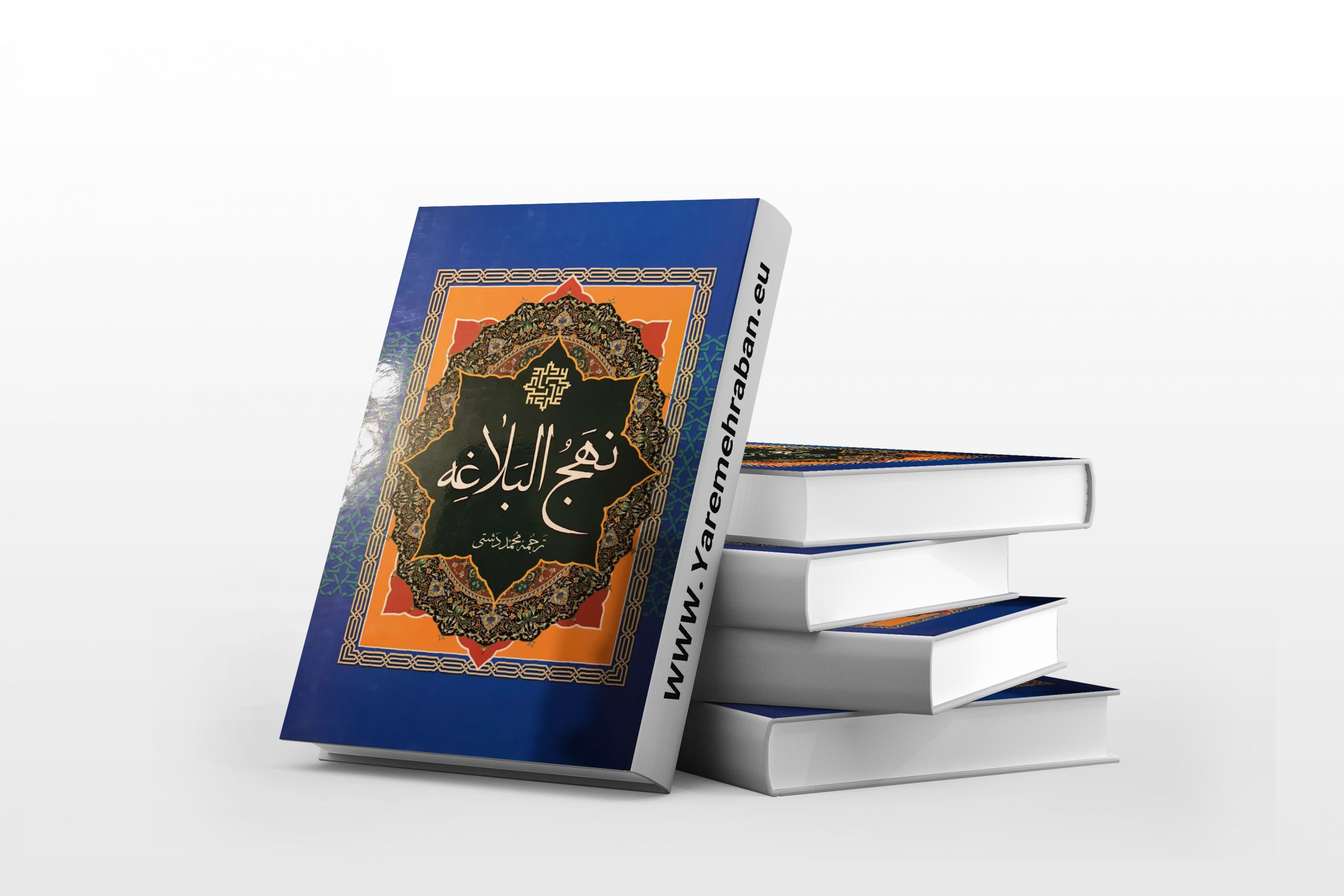

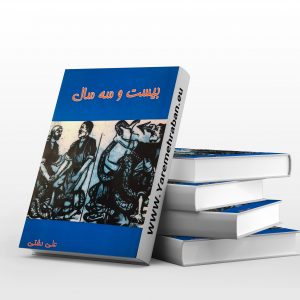
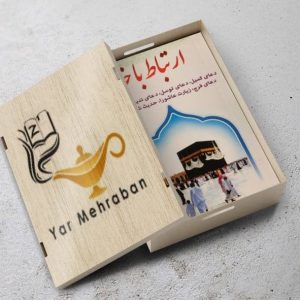

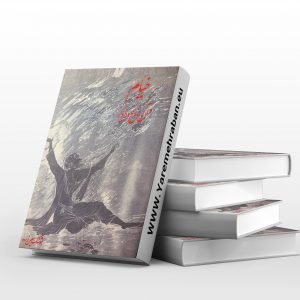

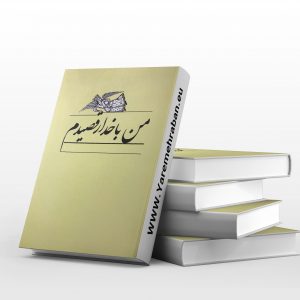





Reviews
There are no reviews yet.